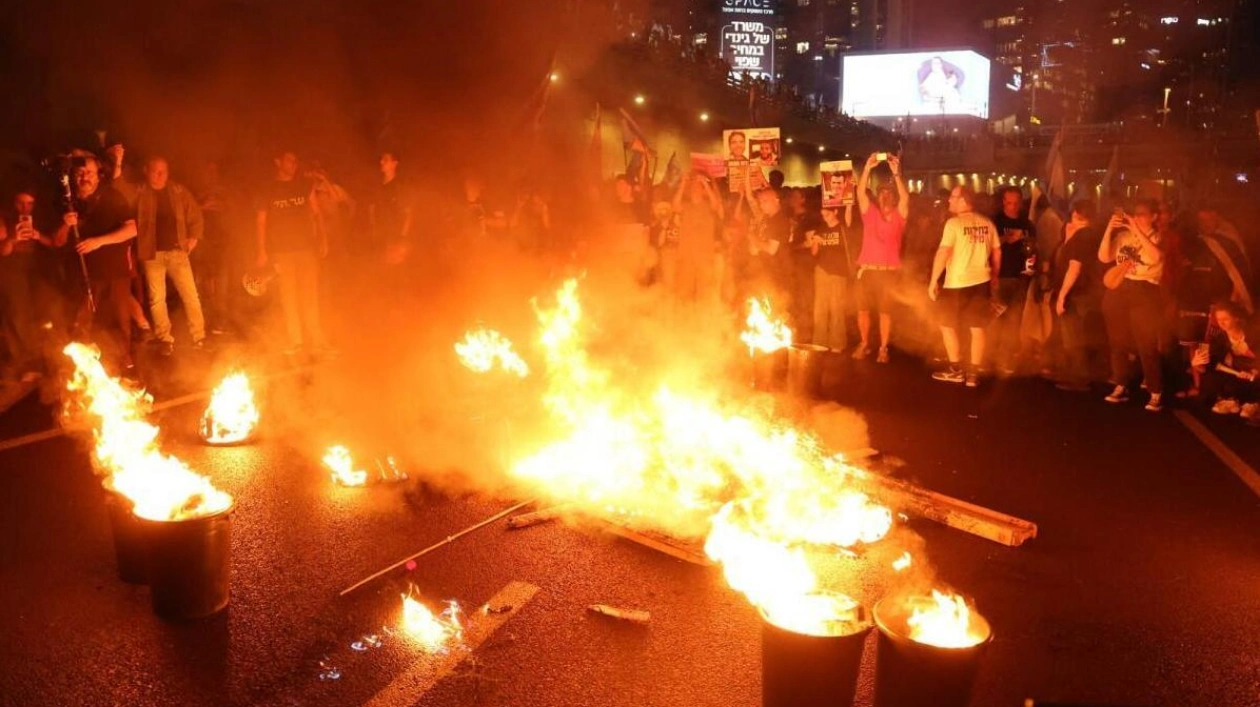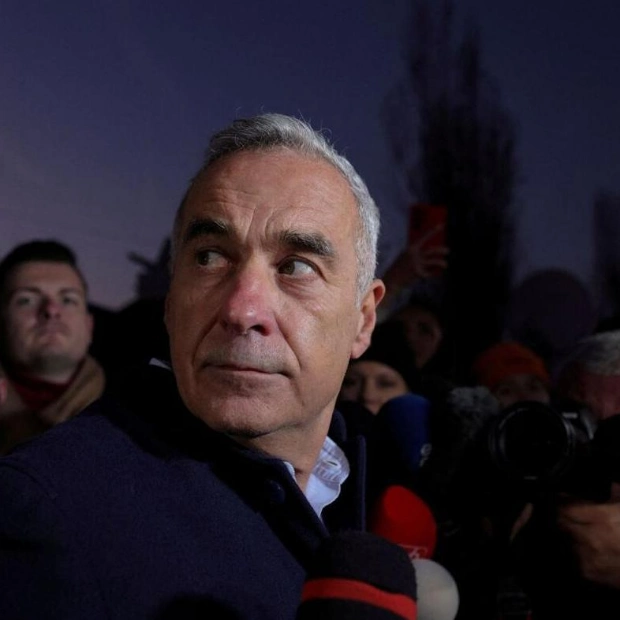Israeli protesters set a fire as they blocked a road in Tel Aviv on November 5, 2024, following the dismissal of Defence Minister Yoav Gallant. — AFP
Yoav Gallant knew his tenure as Israel's Defence Minister was precarious after Prime Minister Benjamin Netanyahu's initial attempt to remove him last year was thwarted by massive protests. Netanyahu relented then, but the relationship between the two never healed, with constant disagreements persisting as the Gaza war dragged into its second year. There were frequent rumors of his impending dismissal, but Gallant refused to resign, continuing to be a persistent irritant to Netanyahu as he advocated for a hostage deal in Gaza and clashed with coalition partners over drafting ultra-Orthodox Jews into the military.
In a televised statement after his dismissal on Tuesday, Gallant stated that Israel was navigating through the fog of battle and 'moral darkness', calling for the return of hostages, a draft law for the ultra-Orthodox, and a commission of inquiry into the failures of October 7, 2023. He concluded with a military salute.
Like the prime minister, Gallant's career was marred by the events of October 7, when Hamas-led gunmen killed around 1,200 Israelis and foreigners and took more than 250 hostages in an attack on communities near Gaza. He has suggested that both he and Netanyahu should be investigated, addressing widespread criticism of the prime minister for not taking responsibility for one of the country's worst disasters.
Gallant frequently clashed with hardline pro-settler parties led by Finance Minister Bezalel Smotrich and National Security Minister Itamar Ben-Gvir, who were among the first to congratulate Netanyahu for sacking him. Despite being as hawkish as Netanyahu in fighting Hamas and pursuing its late leader Yahya Sinwar, Gallant declared at the war's outset that the price Gaza would pay 'will change reality for generations'. He described Israel's enemies as 'human animals' and imposed a total blockade on Gaza, banning food and fuel imports.
However, as the war continued, Gallant appeared more inclined to end the conflict than Netanyahu, engaging more visibly with the families of the hostages still held in Gaza and arguing weeks ago that the time had come for a deal to bring them home. He dismissed Netanyahu's insistence on total victory over Hamas as 'nonsense' and repeatedly urged him to produce a plan for governing Gaza post-war. At the same time, he rejected any suggestion that the Israeli army could remain as an occupying force, angering those like Ben-Gvir and Smotrich who advocated for resettling Gaza.
Both Gallant and Netanyahu face the threat of an international arrest warrant over the Gaza campaign—which has destroyed the enclave and killed over 43,000 Palestinians—following a request from the International Criminal Court's prosecutor in May. This possibility has caused outrage in Israel, but the issue of responsibility for the military and security failures that allowed the October 7 attack has been a major source of tension in Israeli politics since then.
After a 35-year military career that began in a naval commando unit, Gallant rose to the rank of general before entering politics a decade ago and becoming defence minister when Netanyahu returned to power at the end of 2022. Highly regarded by the US administration and other foreign allies of Israel, he never seemed at ease in the world of party intrigue, preferring to talk to soldiers on the front line, often dressed in one of the black uniform-like shirts he adopted at the war's start.
'The security of the state of Israel was, and will always remain, my life's mission,' he said in his first statement after his dismissal. With Israel now engaged in a multi-front war—in Gaza, with the Iranian-backed Hezbollah movement in Lebanon, and potentially with Iran itself—the timing of the dismissal has faced heavy criticism.
Gayil Talshir, an Israeli politics specialist at the Hebrew University of Jerusalem, said that after the disputes with Netanyahu and recent tensions over the conscription law, it was clear Gallant would be sacked at some point. 'It was just a question of timing. And the timing, on the eve of another possible attack by Iran, is the worst you could have expected,' she said.
The tensions with Netanyahu date back to at least the middle of last year, when Israel was divided over a push by Netanyahu to curb the powers of the Supreme Court, with huge weekly protests against a move critics saw as an assault on democracy. As the protests grew, Gallant broke ranks and spoke out against the plan, arguing that it was causing such deep social divisions that it endangered national security. This prompted Netanyahu's first attempt to dismiss him, a move he abandoned after hundreds of thousands of Israelis took to the streets in a spontaneous wave of protests that shut down the country.
Source link: https://www.khaleejtimes.com






